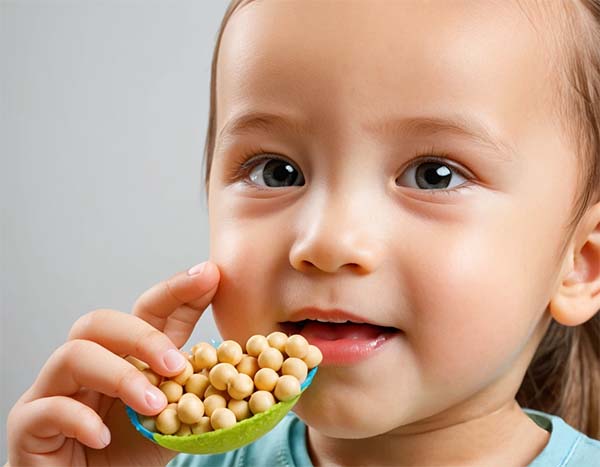THE HEALTH IMPACT OF CHILDHOOD SOY CONSUMPTION

The soybean is a nutrient-dense food that offers many health benefits that can contribute to the growth and development of children. Soyfoods can contribute several important nutrients to the diets of children such as protein, essential fatty acids, calcium, potassium, and folate.
As in adults, soy protein lowers circulating cholesterol levels in children and there is intriguing evidence indicating the consumption of as little as 1 serving of soy per day during childhood may markedly reduce risk of developing breast cancer later in life.Epidemiological research involving Asian and Seventh-day Adventist populations as well as clinical research supports the safety of soyfoods.
Soyfoods are an increasingly popular food choice in the United States. Americans enjoy traditional Asian soyfoods such as miso, natto, tempeh, edamame, and tofu and also consume soy ingredients including isolated soy protein, soy protein concentrate, and soy flour/textured vegetable protein as a component of soy-based meat and dairy analogues. With the increasing interest among Americans in plant-based diets, vegan/vegetarian eating patterns, and non-animal protein sources, the topic of soy and how it can positively contribute to children’s diets has become increasingly relevant. An estimated 6% of young adults ages 18 to 34 identify as vegetarian.Many of these young adults are becoming parents, which results in an increased interest in how soy can be incorporated into the diets of children.
ISSUES OF CONCERN TO PARENTS - Hormone Levels and Puberty
Although the research is limited, the evidence indicates that soy does not affect circulating hormone levels.
Children are entering puberty earlier in life throughout much of the world. This development is giving rise to considerable concern. Factors potentially contributing to early menarche include increasing obesity and increased animal protein intake. Because soyfoods contain isoflavones, there is interest in determining whether soy intake impacts onset of menarche. While there is limited research on this topic, a study involving 327 U.S. Seventh-day Adventist girls showed that even very high intakes of soy protein-containing foods (24 servings/week) is not associated with the age of menses onset.
Author By Connie Liakos,MS Editor
https://www.soyconnection.com/old-pages/resources/health-nutrition-newsletter/health-nutrition-newsletter-details/health-impact-of-childhood-soy-consumption





